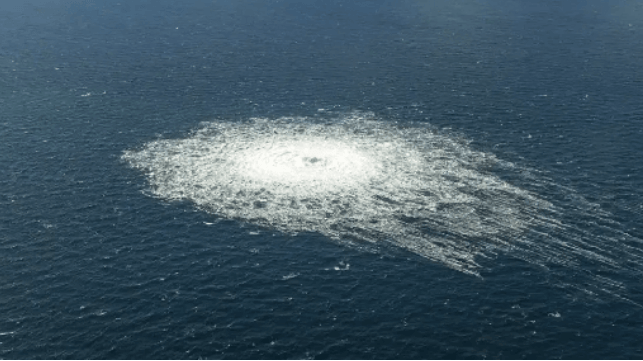Germany and Norway Want NATO to Help Secure Subsea Infrastructure

As the push to secure Europe’s critical infrastructure intensifies, Germany and Norway on Wednesday launched a plan that would see the two countries partner in protecting key undersea infrastructure such as pipelines and telecommunication cables.
The German Chancellor Olaf Scholz and his Norwegian counterpart Jonas Gahr Store said the initiative would take the form of a military alliance. The leaders also recommended NATO set up a center tasked with the protection of undersea infrastructure.
“The trans-Atlantic alliance has proven coordination capabilities and maritime expertise. A center coordinating protection efforts would be a clear signal that we take protection of our critical infrastructure seriously, and no one should believe that attacks would remain without consequences,” said Scholz.
The September explosions that damaged Nord Stream 1 and 2 pipelines, which investigators say were an act of sabotage, show that Europe must completely re-evaluate the risks to its energy infrastructure, Scholz added.
While on a visit to Berlin on Thursday, NATO Secretary-General Jens Stoltenberg welcomed the German-Norwegian proposal for a “NATO Undersea infrastructure center.”
Such a center “would help provide allies with better situation awareness, map out vulnerabilities and help deter attacks against allies’ undersea infrastructure,” said Stoltenberg.
He went on to say that, NATO has doubled the number of ships patrolling the North and Baltic Seas following the Nord Stream explosions, but more needs to be done to guarantee the security of the undersea infrastructure.
The European Union is also trying to secure these critical infrastructures. In October, European Commission President Ursula von Leyen presented a five-point plan focusing on the bloc’s preparedness and response to threats to its subsea infrastructure.
However, some of the EU member countries are opposed to key parts of the plan. One of the sticking points is on the EU having a common response to incidents related to critical infrastructure. For instance, Finland emphasized relying on trusted vendors and that protection of subsea systems should not be left to national or regional authorities.

that matters most
Get the latest maritime news delivered to your inbox daily.
Britain recently announced that it was accelerating plans for two Multi-Role Ocean Surveillance (MROS) ships designed to protect sensitive defense and civil infrastructure. The first of the vessels, which will be used to improve their ability to detect threats to the seabed and cables, is now slated for delivery in January 2023 more than a year ahead of the previous timeline.
Swedish investigators are also continuing their work regarding the Nord Stream pipelines. The Swedish Security Service and the prosecutor’s office both confirmed that they had found explosive residues at the site. They called it “gross sabotage” while saying that the advanced analysis work is still in progress, with the aim to draw more definitive conclusions and possibly identify who attacked the Nord Stream pipelines.
